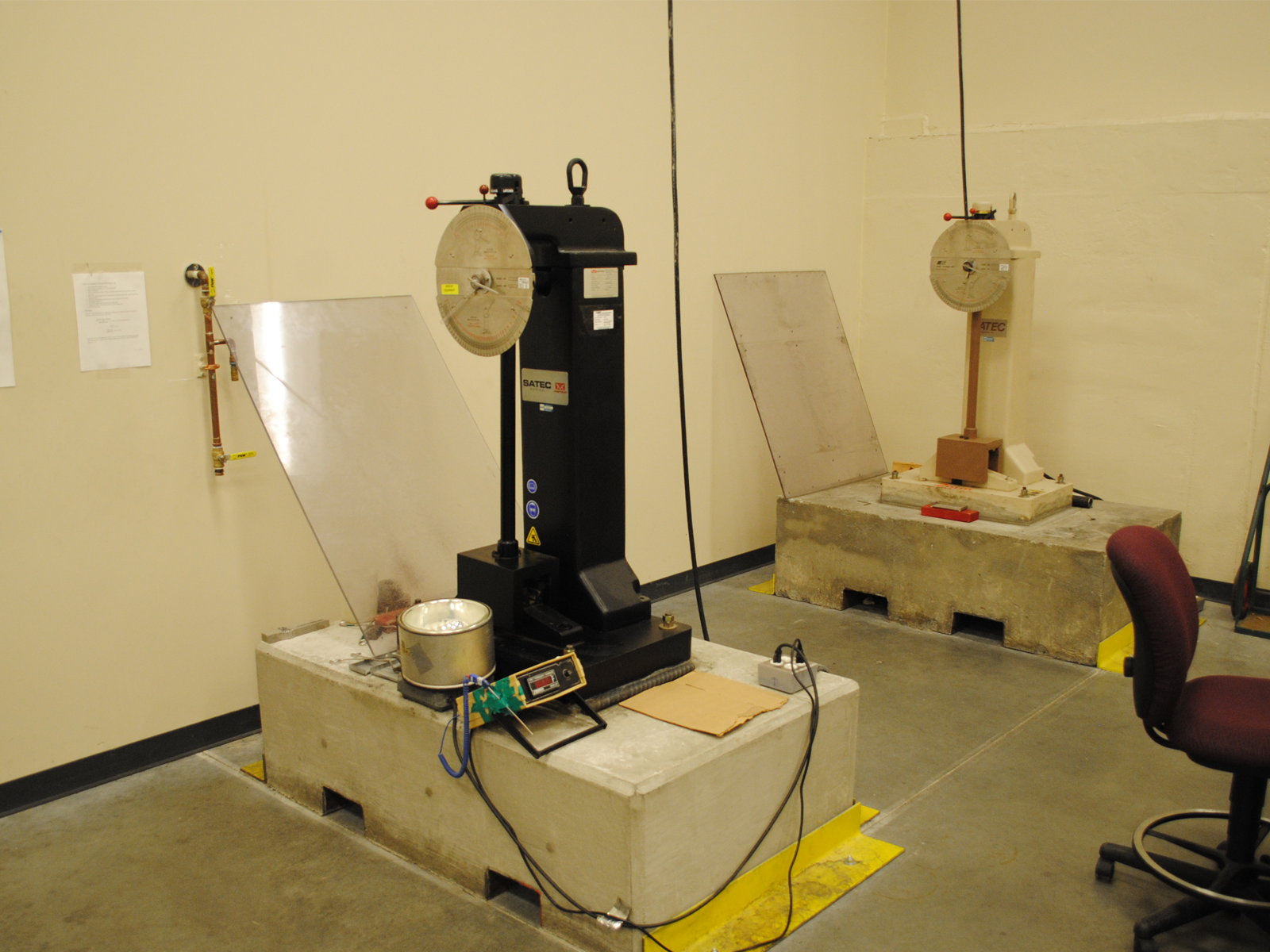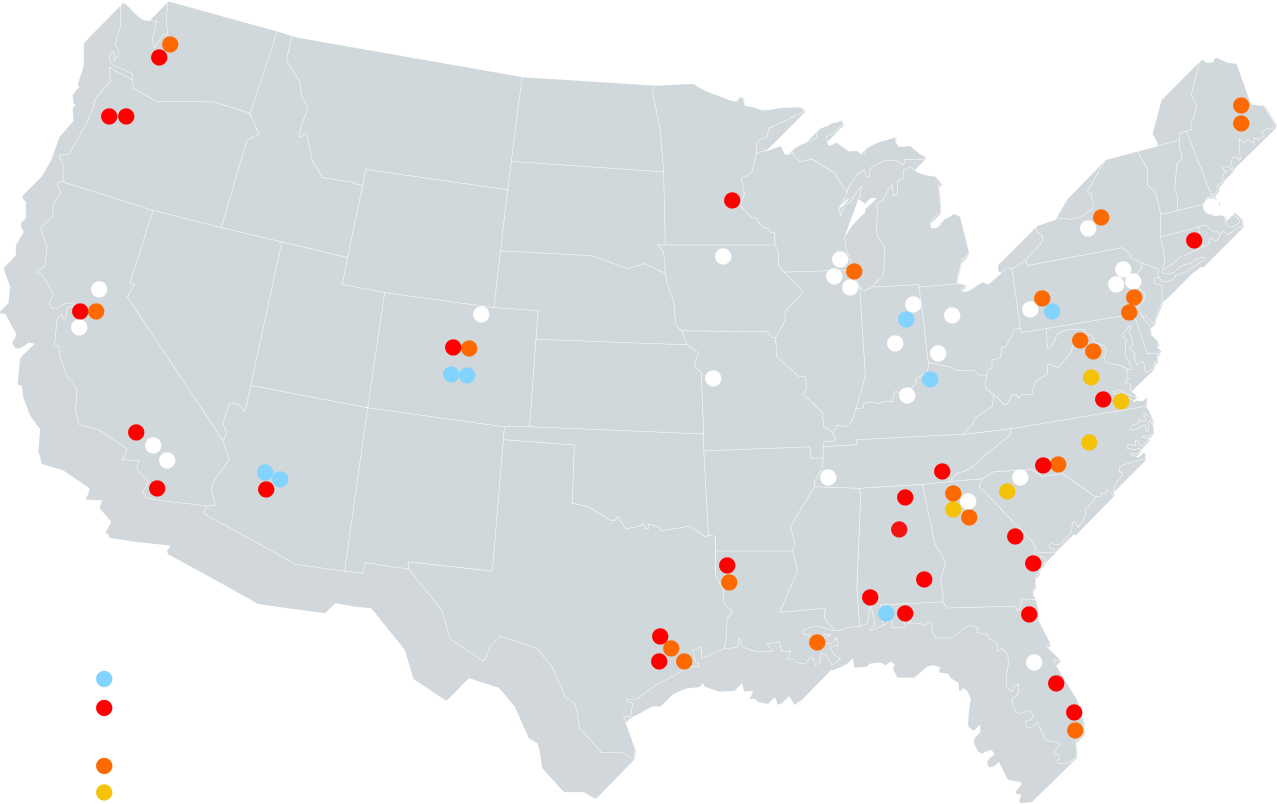Charpy Testing, Additive Manufacturing, and Performance
ATS discovers the mechanical properties of components created using additive manufacturing through methods like the charpy test.
Additive manufacturing is growing in popularity as an alternative method of production. Components created through this procedure need to undergo performance testing just as much as, if not more than, parts made through conventional types of manufacturing; the materials used to produce a part through additive manufacturing tend to display lower tensile and shear strengths than do those used in injection molding, forging, and casting. Clients need this performance data because it may determine whether the material is appropriate for the finished component’s intended use.
To meet these testing needs, Applied Technical Services performs a variety of testing methods to determine the mechanical performance characteristics of components made through additive manufacturing. One such method is called the Charpy Test.
How the Method Works and What It Achieves
We use the Charpy test to determine a material’s ductility and fracture strength. The method involves using a machine to strike a material sample at a perpendicular angle with a controlled amount of energy. By machining a standard notch into the sample material, the location of the stress caused by the impact is controlled.
Our technicians measure the impact energy needed to cause fracture in the sample material, giving them an idea of how the component will behave in live-use. Observing the visual characteristics of the fracture shows them how ductile or brittle the sample was, with more deformation before failure indicating higher ductility.
Charpy testing can also help determine qualities like the material’s ductile to brittle transition temperature (DBTT), which is the temperature at which the sample loses ductility and becomes more prone to shatter on impact. This information is critical for low temperature applications. Although most often used for metal samples, the Charpy test is compatible with harder polymers like Acrylonitrile Butadiene Styrene (ABS) as well.
Material Analysis Capabilities
Our mechanical testing lab performs the Charpy test according to a variety of standards as relevant to client needs. ATS is ISO 17025:2017-accredited to perform this test to the following internationally recognized standards:
- ASTM A370
- ASTM E23
- EN 10045-1
- EN ISO 9016
- ISO 148-1
About Applied Technical Services
Since 1967, ATS has continually delivered testing, engineering consulting, and inspection services of unmatched quality. In the 50+ years since our founding, we have expanded our client base to include businesses from around the world who engage in a variety of trades. Charpy testing, as well as our other methods related to additive manufacturing, can prove beneficial to clients in the following industries:
- Power Generation
- Consumer Products
- Telecommunications
- Automotive
- Nuclear
- Aerospace/Aviation
- Military
- Oil/Gas
- General Manufacturing
ATS’ mechanical testing lab lives by a culture dedicated to customer service. This means that each of our expert technicians contributes to the improvement of our clients’ overall experience by returning clear and accurate reporting within quick turnaround windows. Furthermore, ATS promotes responsiveness in our customer care, keeping technicians accessible during the time between sending off your the samples to receiving your results.
ATS and Quality Assurance
The ATS Marietta Super Lab, which performs all Charpy impact testing, is an ISO 9001:2015-registered entity. Our certification shows that a qualified third-party auditor found our quality management system to be compliant with the internationally recognized standards outlining effective quality assurance practices. ATS takes this extra step to continually improve the quality of our services and ensure the satisfaction of our client base.
If your company needs to determine the physical characteristics of a component made through additive manufacturing, send your sample to ATS for Charpy testing.



